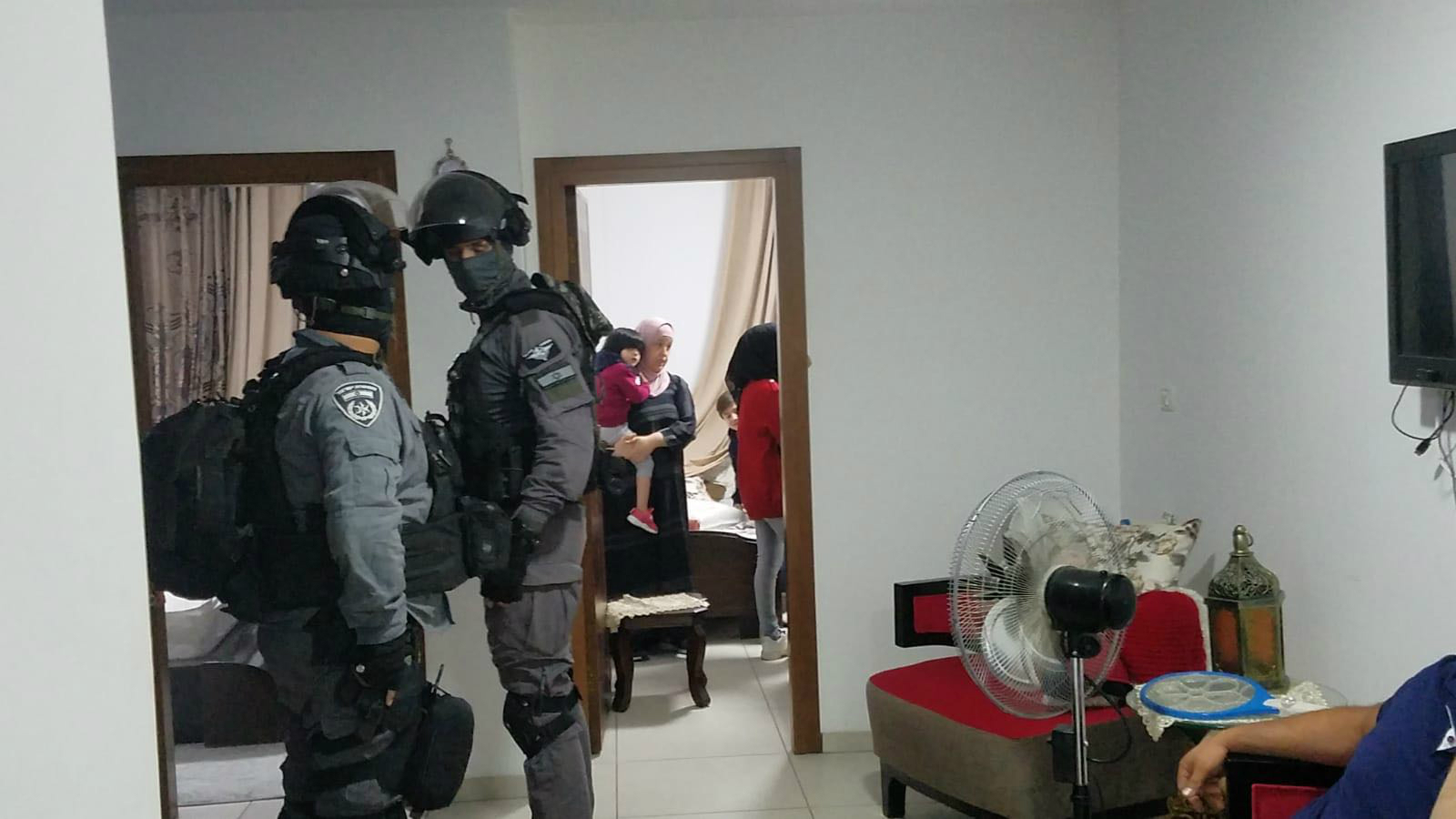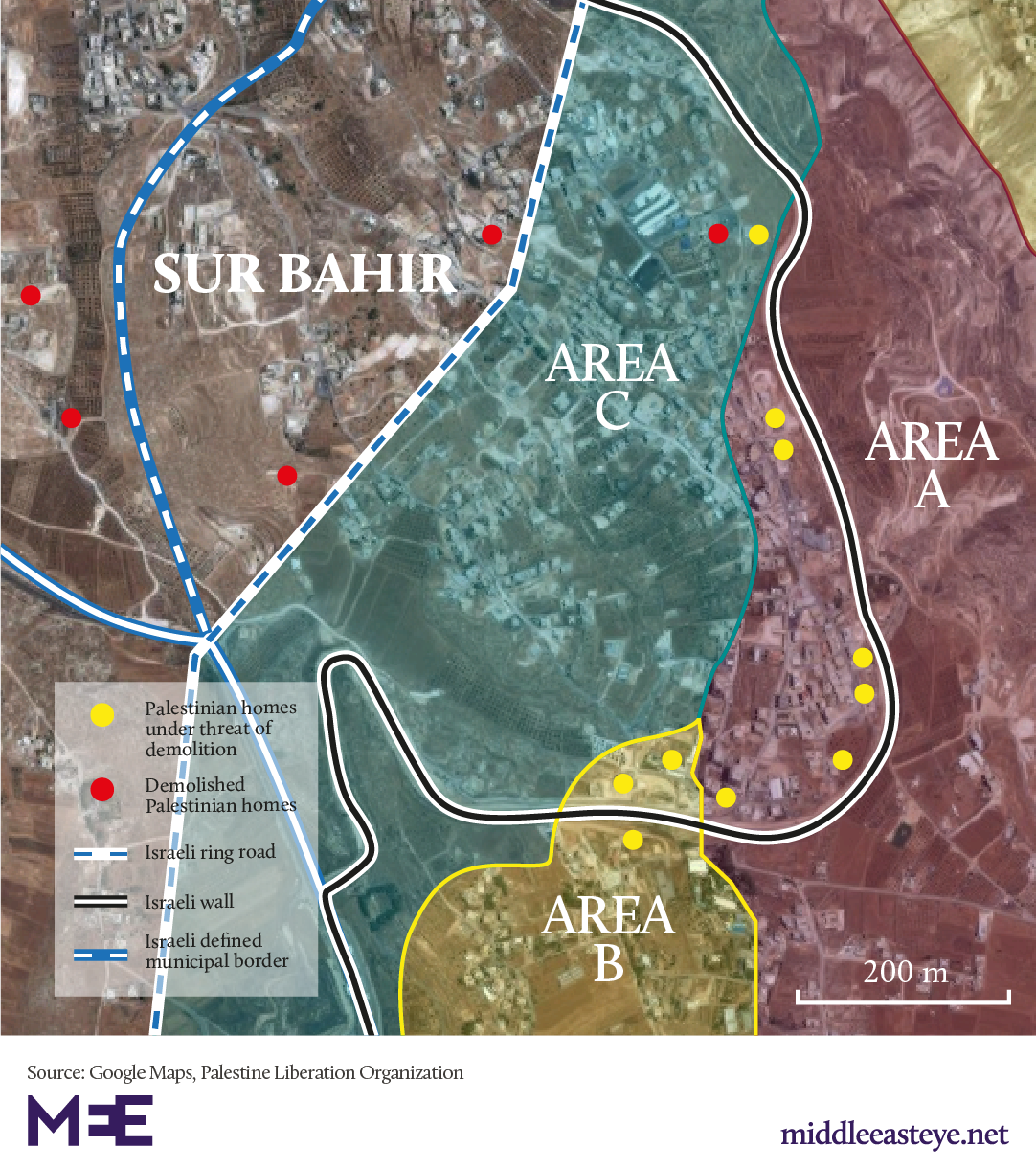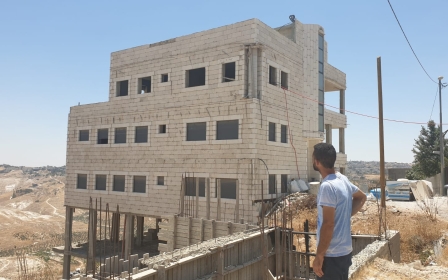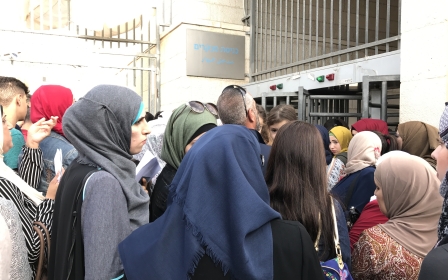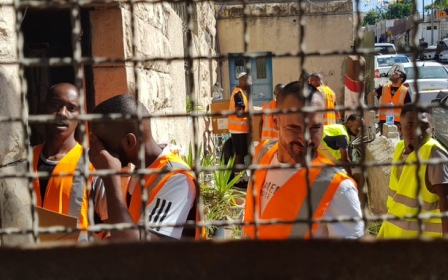Israel destroys Palestinian homes in biggest demolition push since 1967
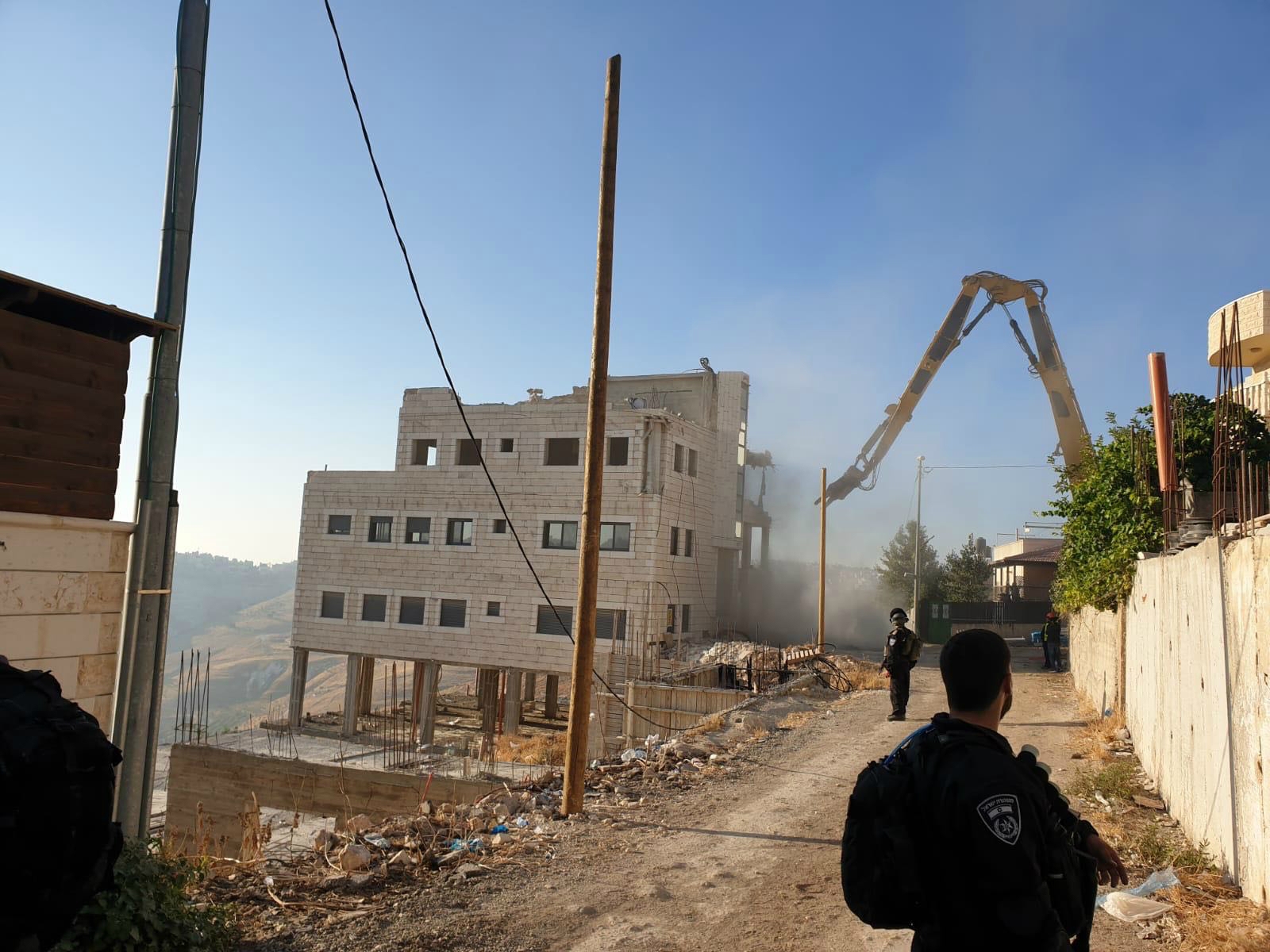
Israeli bulldozers joined by hundreds of soldiers and police demolished Palestinian homes on the outskirts of East Jerusalem on Monday, in the face of local protests and international criticism.
'Among those forcibly displaced or otherwise impacted are Palestine refugees, some of whom today are facing the reality of a second displacement in living memory'
- UN officials
The Israeli forces moved into the Palestinian village of Sur Bahir in the early hours to demolish 11 buildings, including dozens of homes, in the Wadi Hummus neighbourhood close to the barrier which cuts the West Bank from Jerusalem.
By late afternoon, at least one resident had been arrested and 10 buildings razed, MEE's correspondent reported.
Palestinian Prime Minister Mohammed Shtayyeh told a gathering of ministers on Monday that the demolitions were a violation of international law, while other Palestinian officials called for the International Criminal Court to investigate.
UN officials said they were ready to provide assistance to those who had been displaced, but added that “no amount of humanitarian assistance” could replace the loss of the owners, some who had invested their life savings.
New MEE newsletter: Jerusalem Dispatch
Sign up to get the latest insights and analysis on Israel-Palestine, alongside Turkey Unpacked and other MEE newsletters
“Among those forcibly displaced or otherwise impacted are Palestine refugees, some of whom today are facing the reality of a second displacement in living memory,” a UN statement said.
Residents said that Israeli forces cut through a wire section of the barrier in Sur Bahir under cover of darkness around 2am on Monday and started evacuating people before planting explosives to start the demolitions.
The work was filmed and photographed by Palestinian, Israeli and international activists who had mobilised to try and stop the activity.
The Israeli military has declared the area closed for three days, forbidding people from entering or staying in the neighbourhood. Palestinians are banned from collecting their belongings or erecting tents in the area.
Precedent setting
Israel's Supreme Court ruled in June that the structures violated a construction ban. The deadline for residents to remove the affected buildings, or parts of them, expired on Friday.
Palestinians now fear that Monday's demolitions will set a precedent for other towns along the route of the separation barrier, which runs for hundreds of kilometres around and through the Israeli-occupied West Bank.
There is also concern that Israel will now seek to demolish more homes across Palestinian Authority-administered parts of the West Bank, which some of Wadi Hummus lies in.
Palestinians in Jerusalem find it nearly impossible to obtain building permits from the Israeli authorities who have occupied the city’s eastern neighbourhoods since 1967.
So some have looked a little south, to Wadi Hummus where Palestinian Authority (PA) building permits are far easier to come by.
Sitting in the occupied West Bank’s Area B, under the jurisdiction of the PA, developments in Wadi Hummus are built with all the necessary PA permits.
However, Wadi Hummus has a peculiar administrative situation, in that it lies across Areas A, B and C of the West Bank – the first two of which are administered by the PA, the latter by Israel.
And despite being part of the West Bank, it lies on the Jerusalem side of Israel’s separation barrier, meaning its inhabitants have far easier access to the city than Palestinians across the wall, and effectively live under direct Israeli control.
According to the Oslo Accords, Israel should have no say on whether or not homes should be built in Areas A and B.
However, a 2011 Israeli military decision has decreed that Israel can now demolish buildings in PA-administered areas and Wadi Hummus is now the first.
'When the army saw new construction, the owners were only asked about their building permits'
- Hamadeh Hamadeh, Sur Bahir-Wadi Hummus Services Council head
In 2011, Israel banned any construction 100-300 metres from both sides of the barrier on the pretext of creating a security buffer zone.
In the Sur Bahir area of Wadi Hummus, 200 buildings lie in this buffer zone, half of them built before the 2011 decision, according to the United Nations.
Hamadeh Hamadeh, head of the Sur Bahir-Wadi Hummus Services Council, told MEE the Israeli army had made minimal attempts to enforce the building restrictions since 2011.
“When the army saw new construction, the owners were only asked about their building permits,” he said.
That’s a complaint echoed by Alaa Hamid Amira, 39, whose house was destroyed on Monday.
“While I was building, the army would stop by all the time and look at how it was developing," he told MEE last week.
"They would enter on the pretence of checking the labourers had the right paperwork and they never said it was illegal.
“That’s why I was surprised when I found a demolition notice stuck to my door in 2017.”
Middle East Eye delivers independent and unrivalled coverage and analysis of the Middle East, North Africa and beyond. To learn more about republishing this content and the associated fees, please fill out this form. More about MEE can be found here.


